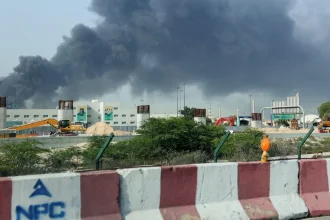No fewer than 13,171 Nigerians who applied for refugee protection between January 2013 and December 2024 have had their claims rejected by the Canadian government.
According to the PUNCH, official data from the Refugee Protection Division of the Immigration and Refugee Board of Canada, Nigeria ranks among the top five countries with the highest number of rejected claims.
The country placed fifth behind Mexico (2,954), India (1,688), Haiti (982), and Colombia (723).
Canada grants refugee protection if the RPD determines that an applicant meets the United Nations’ definition of a refugee, as defined in the 1951 UN Convention.
This includes individuals who fear persecution due to their race, nationality, religion, political ideology, or membership in a social group such as LGBTQ+ individuals, women, or persons living with HIV/AIDS.
To qualify, applicants must provide evidence showing a risk of torture, threat to life, or the possibility of cruel and inhumane treatment if returned to their home country.
The process typically begins when migrants notify Canadian immigration officials upon arrival. If deemed eligible, their claims are referred to the RPD for review.
From 2013 to 2024, Canada rejected thousands of Nigerian applicants under its refugee determination system, which took effect in December 2012.
From 2013–2015:127, 241, and 248 Nigerians were denied. 2016–2018:476, 917, and 1,777 rejections.
2019 marked the highest rejection rate, with 3,951 applications denied. In 2020–2024, 1,770, 1,686, 728, 439, and 811 applicants were turned down, respectively.
Despite the high rejection rates, 10,580 Nigerians successfully obtained refugee status during the same period, ranking Nigeria eighth among countries with the highest accepted claims.
In 2024 alone, at least 2,230 Nigerians were granted refugee status.
Executive Director of the Women Trafficking and Child Labour Eradication Foundation, Imaobong Ladipo-Sanusi, attributed most rejections to economic migration rather than genuine refugee claims.
“Many Nigerians fail to understand the laws governing refugee status in their destination country. Documentation is crucial. Coming in irregularly increases the chances of rejection. But migration must be safe, orderly, and regular. Those who genuinely need protection should receive it,” she said.
Development economist Aliyu Ilias, however, expressed concern over the mass migration of Nigerian professionals, particularly in critical sectors like medicine and engineering.
“It’s a brain drain. Training a professional in Nigeria is subsidized, yet they take their skills abroad. Our GDP is declining because these professionals do not return,” he explained, adding that remittances from the diaspora—averaging $20 billion annually from 2019 to 2021—are insufficient to compensate for the loss.
Similarly, activist Deji Adeyanju criticized the government’s failure to retain skilled workers.
“The health sector is struggling. Scientists, doctors, lecturers—all leaving. Why should they stay when they’re undervalued? This is the Japa syndrome,” he lamented.











